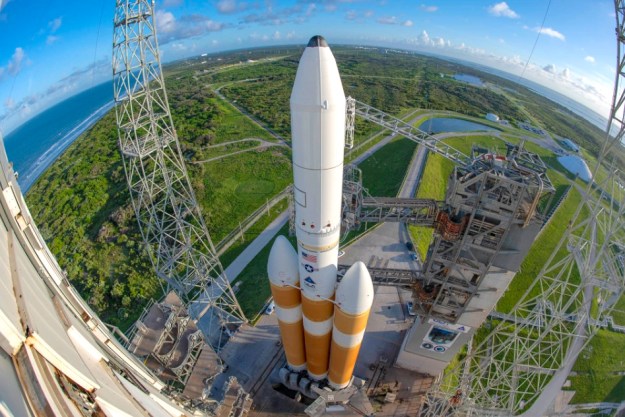The SS-520 F4 “mini rocket,” which is touted as the world’s smallest satellite launch vehicle and has the potential to reduce the cost of sending small satellites into space by as much as 90 percent, launched from the Uchinoura Space Center in southern Japan at around 8.30 a.m.
Although the actual lift-off went without a hitch, the rocket, which is about 10 meters (35 feet) long and 50 centimeters (20 inches) in diameter, stopped sending data back to mission control soon after it left the ground. As a result, the team decided to abort the mission, causing the machine to crash-land in a targeted area in the sea.
The rocket, designed with help from Canon Electronics and using parts from various consumer electronics devices such as mobile phones, was carrying a small 3-kg (6.6 lb) satellite built by the University of Tokyo that’s designed to take high-quality images of Earth.
“The first stage of the rocket’s flight went as planned. However, we were unable to receive [data] from the unit as it continued the flight,” JAXA said in a release.
According to CNN, the launch was meant to showcase the Asian nation’s mini-rocket and micro-satellite technology that JAXA hopes will catch the attention of private companies looking for cost-effective solutions for getting equipment into orbit.
As Japanese media outlet Nikkei points out, the use of ultra-compact satellites is growing, prompting a number of companies to develop low-cost launch vehicles using mass-produced electronic components.
JAXA’s mini rocket, which is a modified version of a larger SS-520 machine that debuted 18 years ago, clearly needs some work, but once the creases are ironed out, the space agency hopes to attract attention from companies around the world on the hunt for for efficient and economical satellite launch vehicles.
Editors' Recommendations
- Watch NASA’s U.S. weather satellite rocket launch highlights
- See how NASA seals a large satellite inside a rocket fairing
- Rocket Lab satellite launch will go ‘just a bit further than usual’
- You might be able to see a NASA research rocket launch tonight
- The world’s first wooden satellite could launch into orbit by 2023


